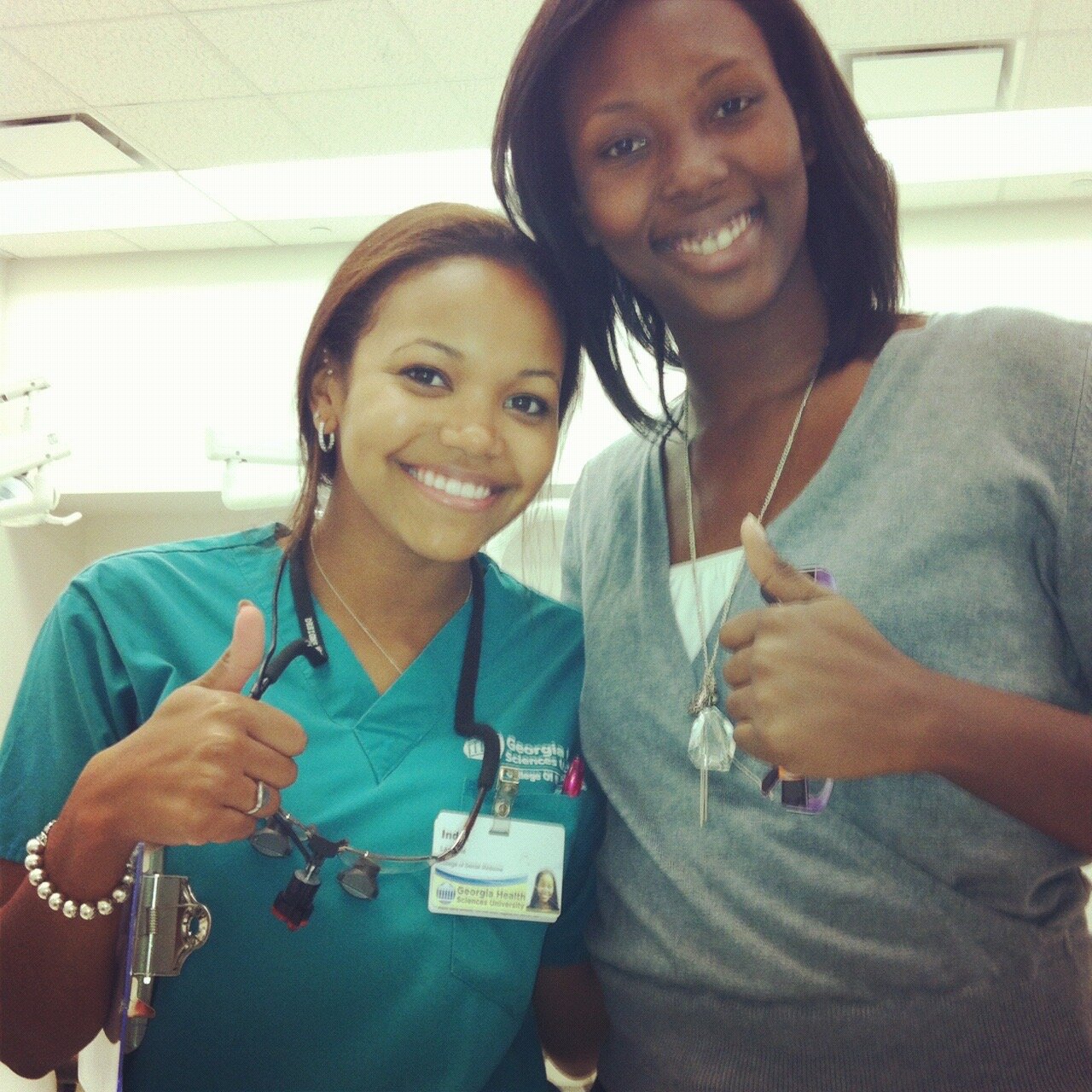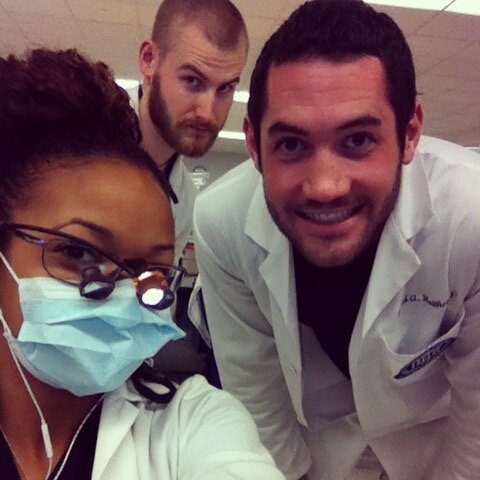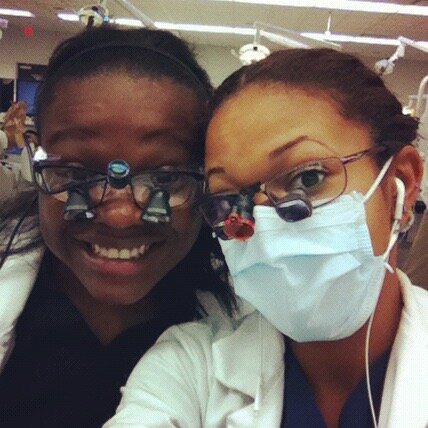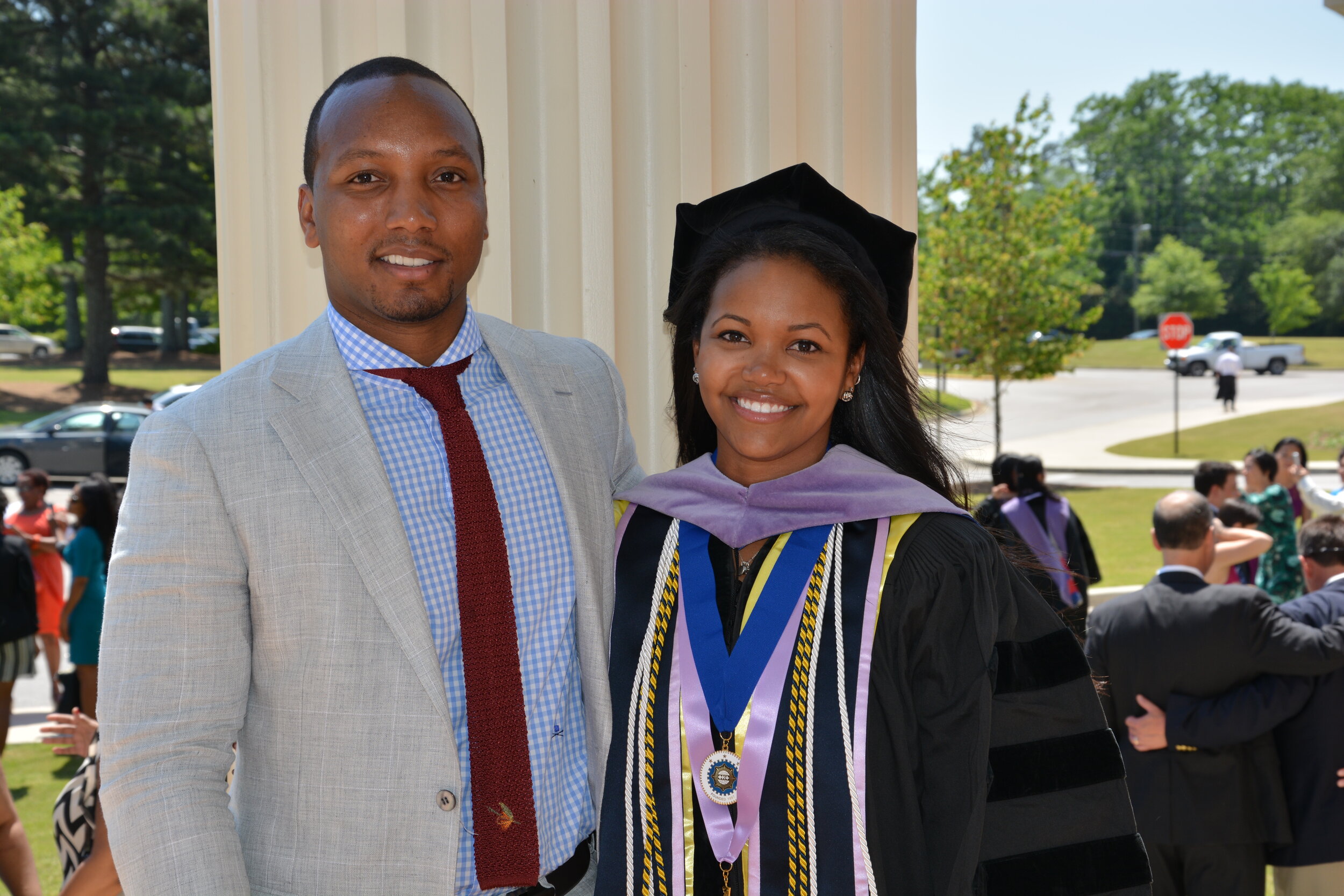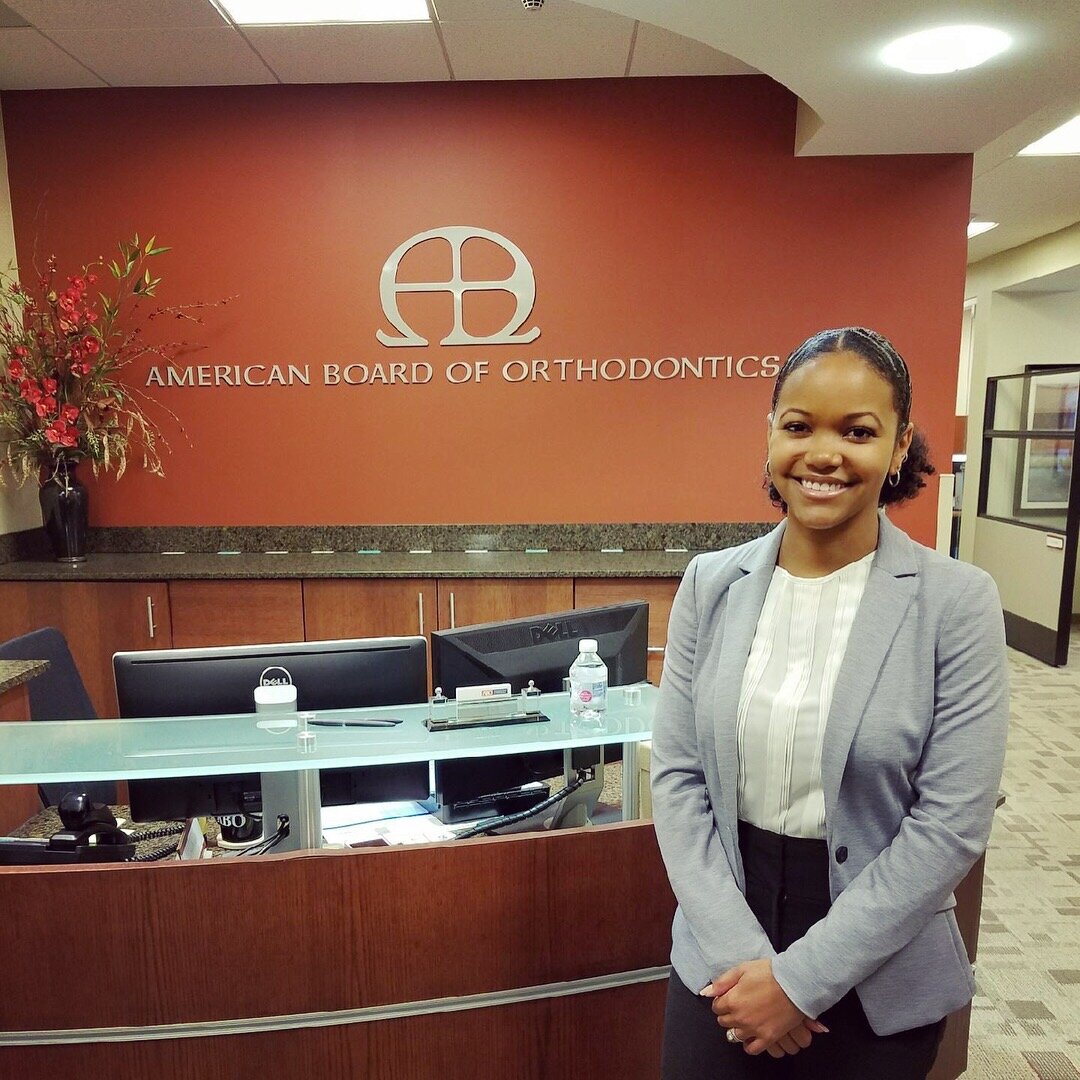My Dental School Journey: Rejection, Racism, and Rising Above
If you would have told me back in high school when I was starting to think about how to become a dentist, that over 10 years later I would finally become a Board Certified Orthodontist and only the second Black resident to graduate from my program, I probably would not have believed you. I became interested in dentistry over the years as I grew up around the dental office, hanging out after school before gymnastics while my dad was finishing work, or stopping by on the weekends. We grew up attending dental conventions every summer in different cities when my dad served on the executive committee of the National Dental Association. Being around Black dentists was a regular occasion to me and something I didn’t realize was not the norm until I began down my own journey towards becoming a dentist.
When I began my studies at Spelman College, I declared Biology as a major with a pre-dental track to satisfy my interest in science and art, and carve a path towards dental school that seemed achievable. I was surrounded by beautiful Black women my entire experience and it was completely normal to be inspired by the drive and focus of those around me. I started doing research on dental school admissions requirements. I knew I had to take the DAT and I began preparing in the best way I knew how at the time. I made a study schedule during my spring semester of my Junior year and took the exam the following summer. I submitted my applications and waited for good news. I kept waiting and the good news never came. I received a rejection letter.
I did not get into dental school the first time I applied and I was crushed by it. I felt very ashamed, sad and defeated when I first received the rejection. I was watching my classmates and close friends get acceptances to medical and dental school, and I was embarrassed to say I didn’t receive the same. I had to shift my focus to a backup plan and figure out what I had to do to become a stronger applicant. I knew my grades were sufficient, but I needed to increase my test scores on the DAT in several areas. I still had to finish my Senior year and study extremely hard to increase my scores, which I did. I gained acceptance to Medical College of Georgia, College of Dental Medicine on my second try and I couldn’t be happier. During my gap year, I worked in my dad’s dental office and really expanded my dental knowledge and assisting skills.
By the time I was ready to enter dental school a year later, I was a little nervous since I had been out of school for an entire year that I may not be as competitive and my knowledge may not be as fresh as those coming right out of school. I set a goal to try my best and give it all I had. There were very little distractions in Augusta and I could really focus during the week and devote all my energy to dental school. I completed my first semester with a 3.96 and I knew moving forward Spelman prepared me to do exactly what I needed to do to excel in any environment.
There was a large part of me that wanted to prove that my previous denial would not define me, so I worked hard to play the game and reach the top to prove them wrong. I knew I had to work twice as hard to prove that I was just as worthy of my spot as the rest of the class, and that’s exactly what I did. At the end of my first year, I was given the opportunity to apply to be a student member of the dental admissions committee. Once accepted onto the committee, I attended weekly admissions meetings with the faculty and deans, I read applications every Tuesday over lunch, met with each interview group the evening before their interviews and had lunch with them following their interviews the next day. I wanted to know all of the ins and outs of the application cycle to help somebody like me make the right choices to avoid a rejection letter.
Admissions season is well over half of the year, and I was a student member of the committee for the next three years. This was a large time commitment but an incredibly invaluable experience. I was faced with balancing 25-30 credit hours each semester, admissions committee, I founded a new student organization my first year, and made time to practice and study somewhere in between. I was fortunately blessed with exceptional hand skills, so I was able to focus more of my time on studying and less time in the practice lab. My third year in school I solidified my interest in Orthodontics and decided to specialize, which would require another application process. Orthodontics is a very competitive specialty, but this time around I felt confident since I worked hard to gain a spot at the top of my class. I applied to only two programs, and I was accepted into my first choice. Upon graduation from dental school, I would remain in Augusta for an additional 30 months of training.
Unlike dental school, where 10% of my class was Black, there were no other Black residents throughout all of the seven advanced education programs that year. It wasn’t until a few months before graduation that I realized I would be the second Black resident to ever graduate from my residency program. The first being my now colleague, Dr. Portia Ellis Carter. On December 8th, 2017, I could finally see the finish line as we prepared for graduation day. I still remember the scene perfectly. I was standing at the front of the room in front of my family and faculty members, ready to receive my final diploma. I stepped forward next to Dean Lefevbre, who was announcing our names. She turned to me with a smile on her face and said, “Congratulations Portia.” The room fell silent and I froze. She tried to quickly clean it up and announced my correct name, Dr. India L. Collier, which was written on the diploma in her hand the entire time. This was actually the second diploma she would witness me receiving, as this was the same woman present on stage, facilitating our graduation from dental school 30 months prior. The same woman that watched me stand up three separate times at my previous graduation to be recognized for induction into three different honor societies. The same woman that sat in admissions meetings with me for three years. At the highest point of my education, on one of the most anticipated days of my life, after almost seven years of postgraduate education, tears, struggles and challenges, she stole that moment from me. I couldn’t even get the respect of being called my own name.
This is when I got angry. This is when I knew I had to make a decision to help the next wave of Black dentists, because the fact is, there are not enough of us. Out of roughly 200,500 Dentists nationwide, only 3.3% of them are Black. Out of roughly 10,700 Orthodontists, approximately 3000 are women, and only 300 are Black women. I am one in 300. When I attend orthodontic meetings, I am hard pressed to find another face that looks like mine, if there are any at all. There was only one didactic faculty member in dental school that looked like me, and there was not one clinical instructor that was Black the entire time I was in school. When I challenged the American Board of Orthodontics exam, there wasn’t a face in the building that looked like mine. Organized dentistry is no different, and this is a problem. It is so important that our young brothers and sisters see people that they can relate to, in all aspects of their lives.
I made a commitment to make time for mentoring and to help share the knowledge I was exposed to while on the admissions committee. I knew Spelman prepared me well and helped me get to where I am today, which is why I feel such a strong passion towards helping mentor the health science students there. I work closely with a group of Spelman dentists that are all committed to making sure these beautiful young women have the resources they need to succeed. We help them prepare study schedules, provide shadowing opportunities, study with them on Zoom for hour long practice DAT exams, and lend an ear when they just want to talk. I feel a responsibility to make sure those that come after me have the support they need to excel in life.
Mentorship matters so much. Representation matters equally. Not only does it matter for Black women, but we need the same for our Black men. We need the same for all minorities. I challenge you to take a look at your life and reflect on ways you may be able to reach back and help those coming after you. It could really change someone’s life. It could be the difference between getting into graduate school the first time or getting a rejection letter. It is our responsibility to share our experiences and share our knowledge to better the next generation of Black lives.


